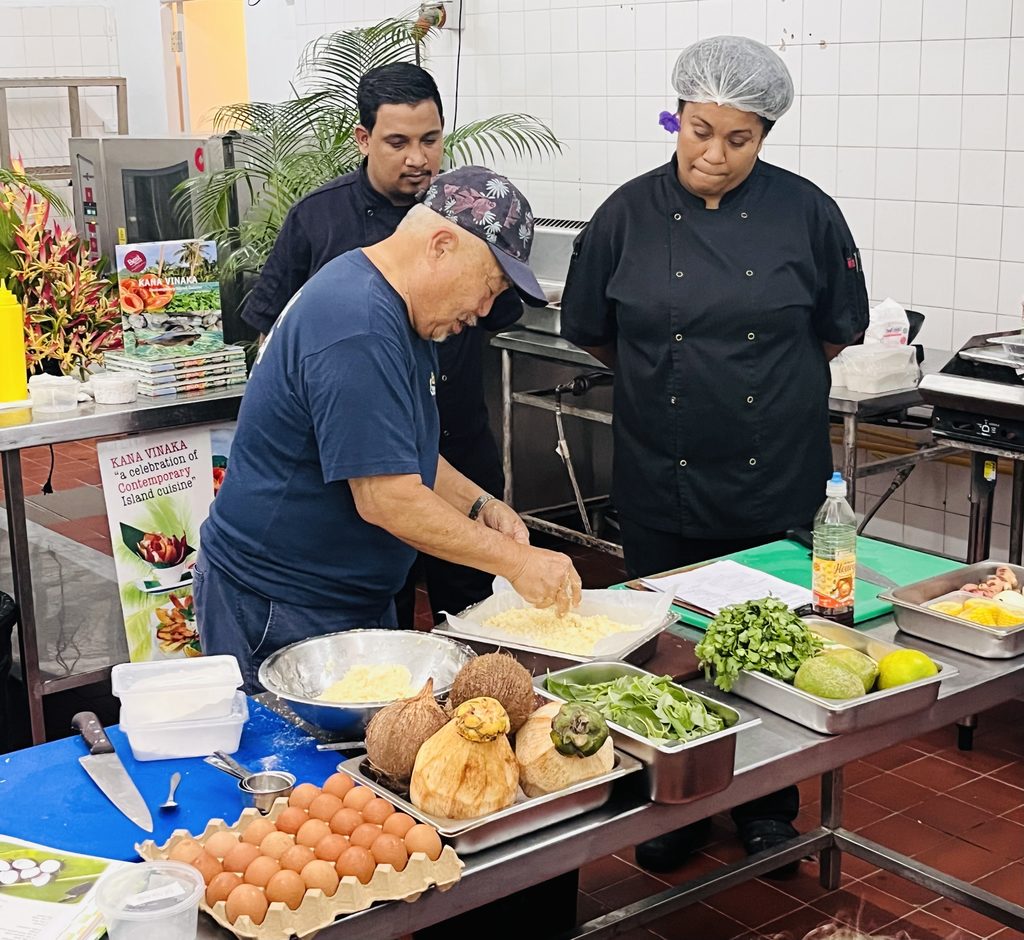DIABETES is common in the country and with the number of people suffering from diabetes rapidly growing, it is important for the nation to embrace a healthier lifestyle.
According to the Ministry of Health, almost one in every three Fijians are being diagnosed with diabetes, that is 30 per cent of the population.
By changing your diet, increasing your level of physical activity and maintaining a healthy weight, can help many people stay healthy, live longer and reduce the risk of having diabetes.
What we eat is crucial in maintaining a healthy life and the saying “we are what we eat” underlines that.
Fiji offers seasonal produce that are in abundance and what better way to help reduce the increase of non-communicable diseases then by eating healthy well-balanced food that are locally grown.
The Ministry highlighted that eating is a crucial ingredient in maintaining people’s wellness and staying healthy and that Fiji is blessed with a land full of healthy fruits and vegetables, and a sea full of delicious and nutritious fish and seafood.
While there are some wellness champions out there leading a healthy life full of healthy foods, there are many that are suffering an unhealthy lifestyle.
Statistics from 2002 -2012 in the STEP survey reveal that overweight/obesity rates have risen by 8.4 per cent (from 58.5 per cent to 66.9 per cent. On top of that only 15 per cent are eating enough fruit and vegetables each day, suggesting Fijians are not getting enough healthy foods as they should.
Local produces are in abundance every day and are sold at an affordable price in all markets around the country compared to processed imported foods that are sold in supermarkets.
Award-winning cookbook “Kana Vinaka” by Colin Chung can help Fijians navigate their life to a must healthy eating alternative that relies on affordable local produce.
The book is a guiding tool that combines nutritional guide and practical recipes that can be created at home at a low price.
Colin said across Fiji, local markets showcase an array of seasonal produce throughout the year that can be utilised in many ways.
“At its best, produce is plentiful, high quality, economical, sustainable, bursting with flavour with the potential to outshine many widely used imported ingredients,” Colin said.
He said there isn’t a lot of appreciation in Fiji for local, healthy fresh produce.
“There is plenty we can eat here; we don’t need to import anything.
He said some people in Fiji seem to think that everything outside of Fiji is better and healthier.
“I come here to eat the local food. The flavours of local produce is just wonderful.
In the book, Colin highlights ways to use produce to create basic contemporary island cuisine that people can enjoy right at home.
The book explores different ways of using local produce, giving it that more contemporary island cuisine touch.
He said although Fiji has interesting and traditional local dishes, they are sometimes not cooked or presented in ways that are endearing.
“This book is a vehicle for eating better and reducing NCDs,” he said.
“Locals need to recognise, appreciate, enjoy and support this new contemporary cuisine as a healthier, more nutritious and less costly choice than imports.”
When locals start to explore different ways of preparing their meal using more local and less imported and processed food, they are on the right path to living a healthy life.
The book has flavouring and seasonings (garnishes, aioli, dressings, chutneys, salsas, sauces and marinades), snacks and starters, salad and soups, mains, sides and accompanying dishes that uses local fresh produce that can be found in the garden.
It also gives a seasonality chart that can guide readers to what is in season and has a produce map that shows them where they can find Fiji’s major food producing areas.
The book was published by Pacific Islands Resort Consultants Ltd that is managed by Colin and his close friend, Greg Cornwall.
The duo provides cooking segments and training lessons to organisations, hotels and resorts that are interested to make a change to their menus.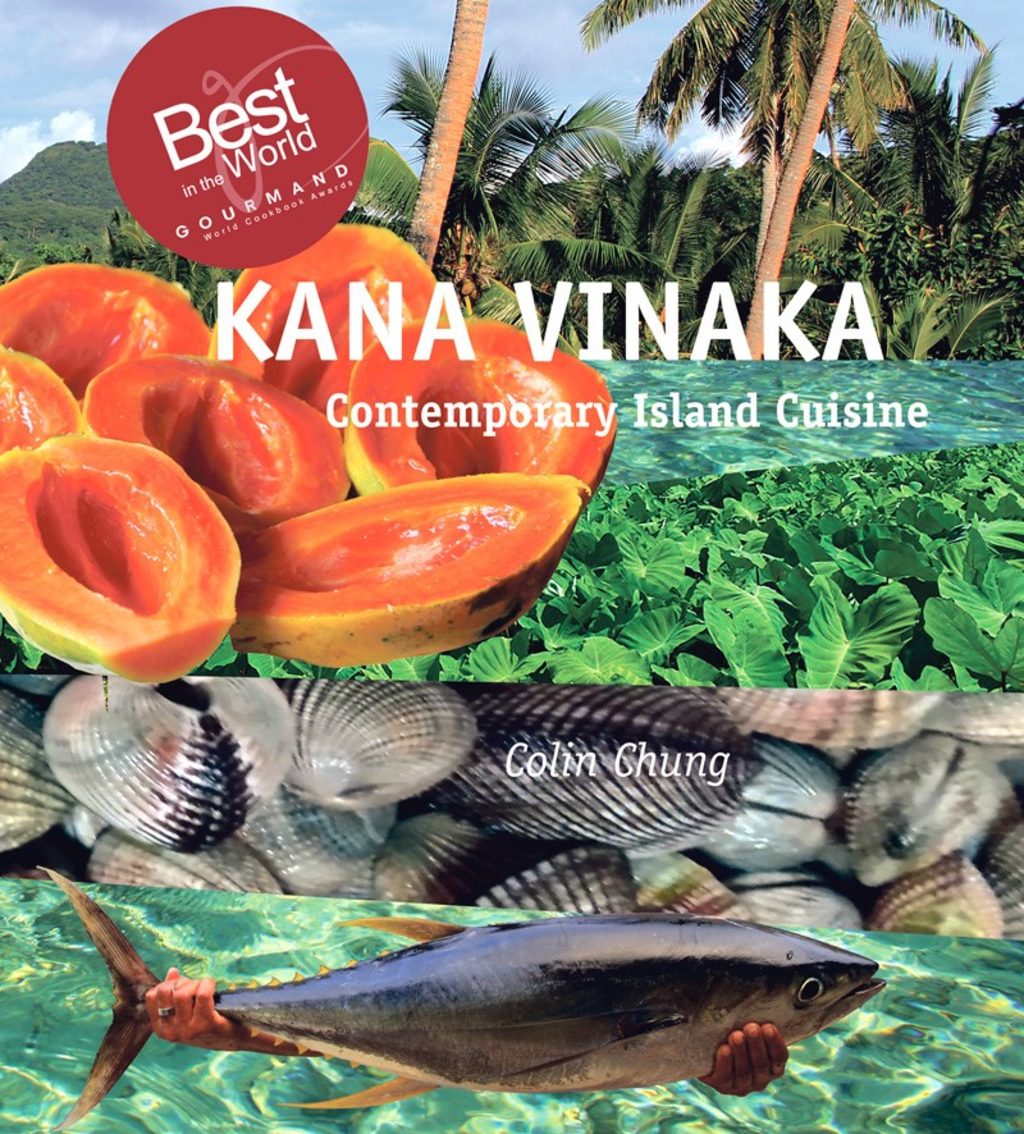
The cookbook “Kana Vinaka”. Picture: SUPPLIED

Mr Chung with some of the ladies he trained during a cooking session. Picture: SUPPLIED
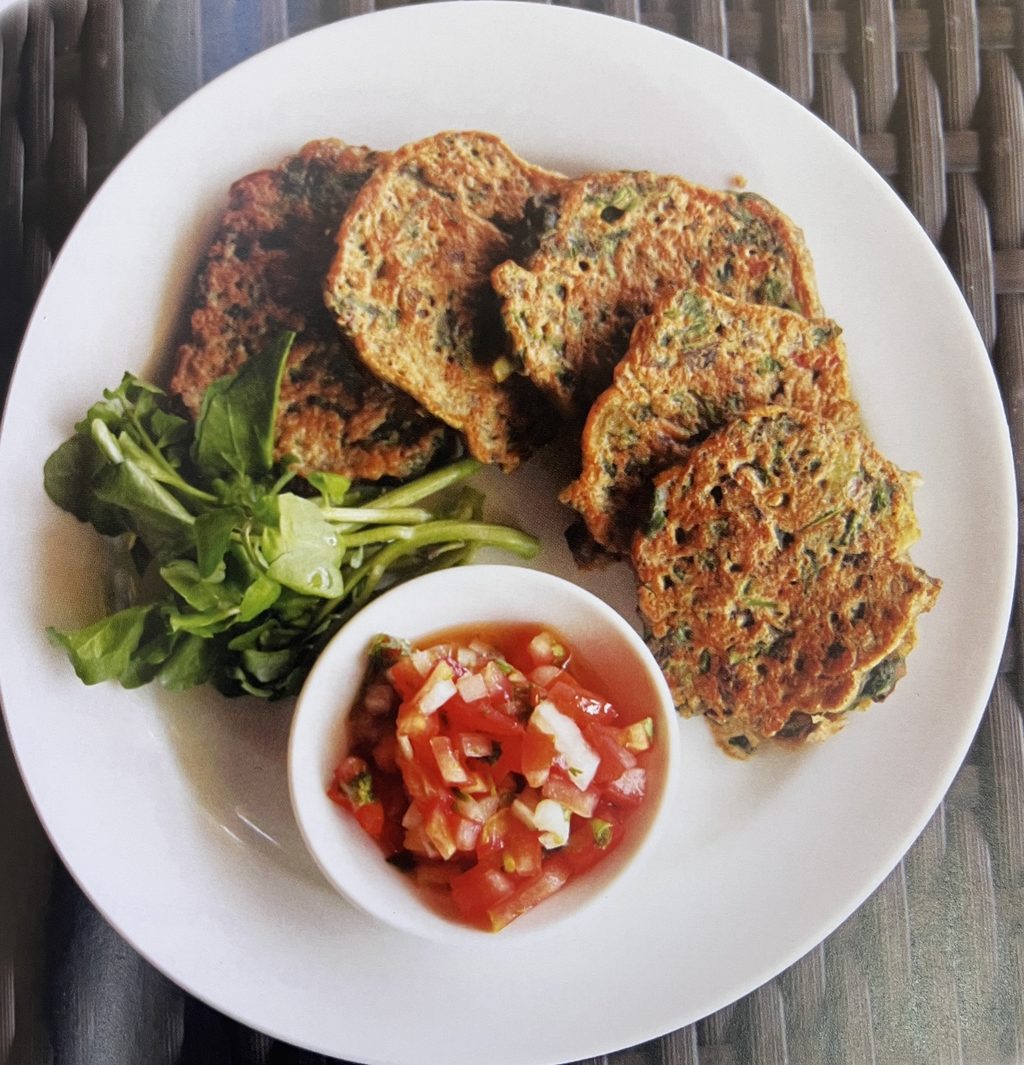
Root vegetable fritters.
Picture: SUPPLIED
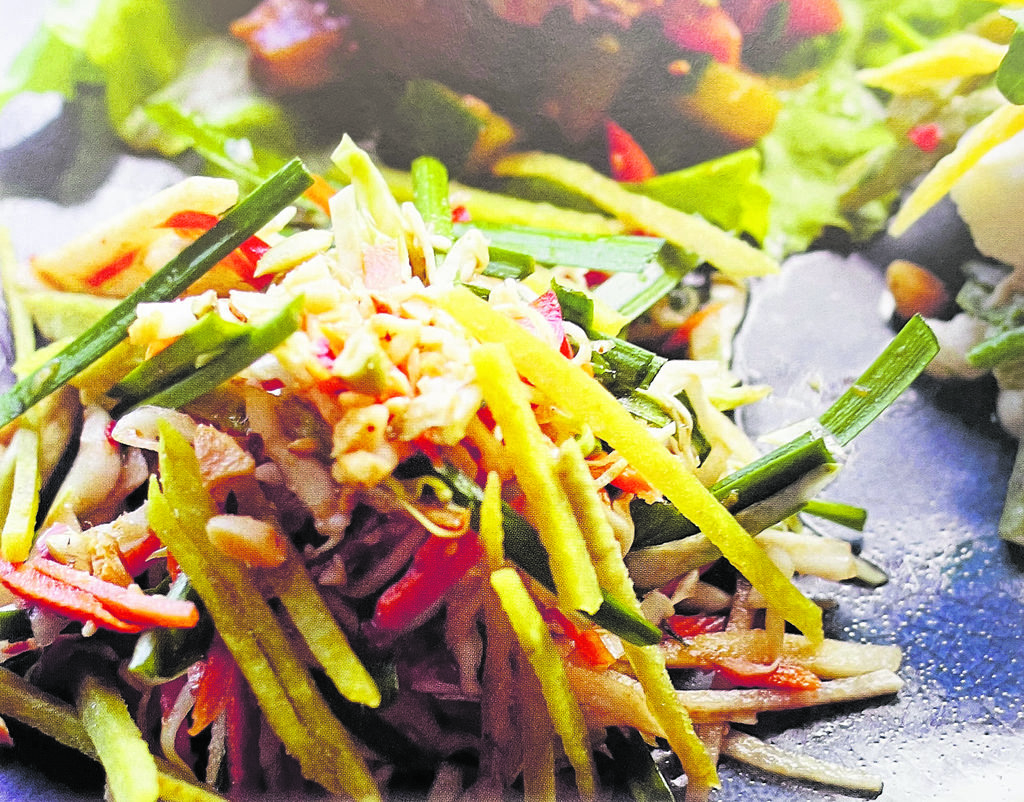
An island salad. Picture: SUPPLIED
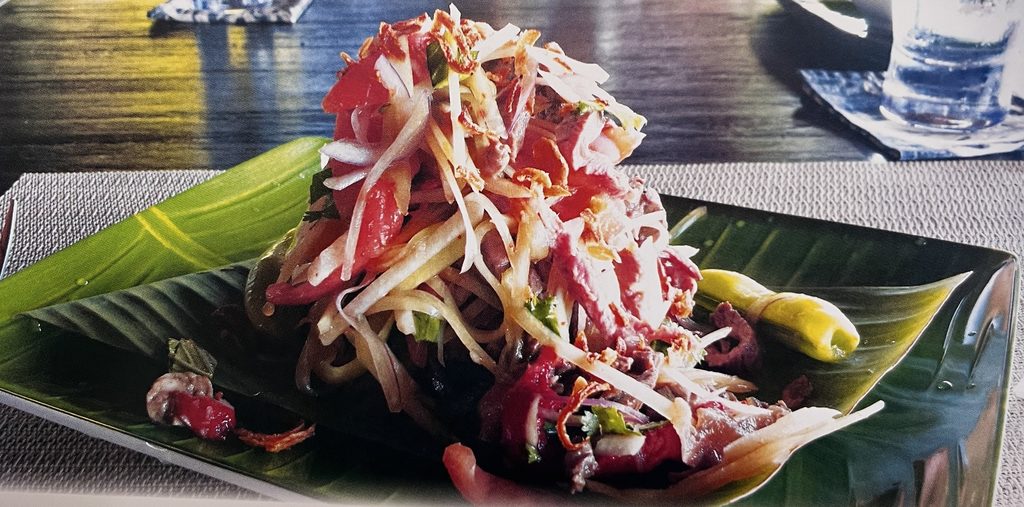
A green pawpaw salad with frilled local beef. Picture: SUPPLIED

